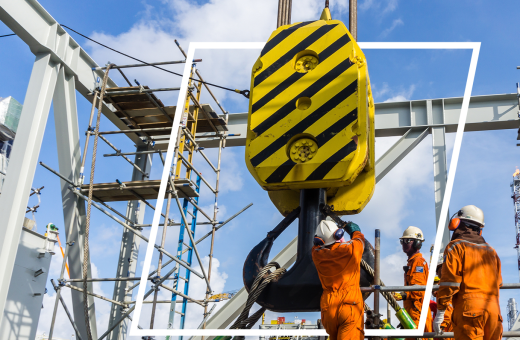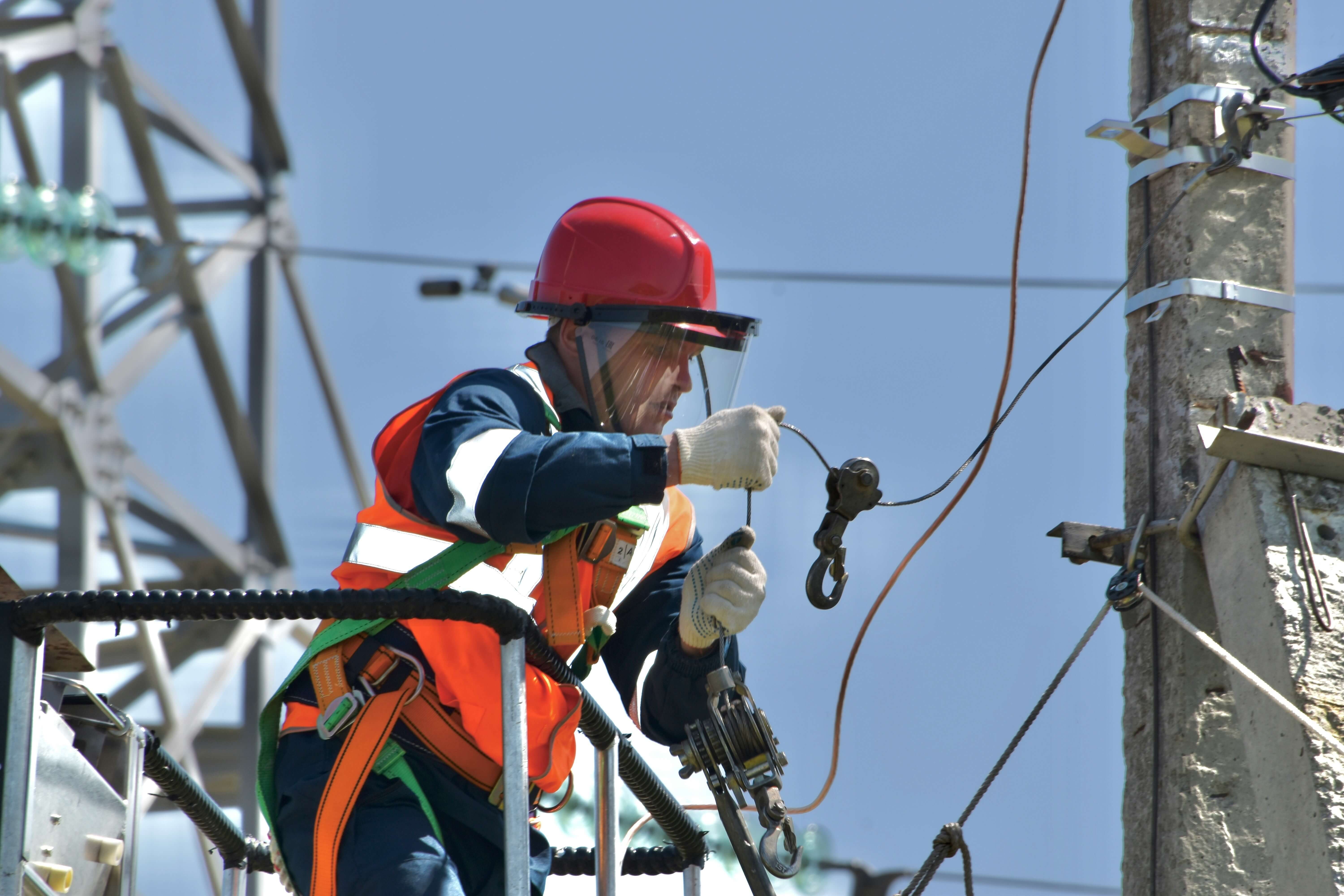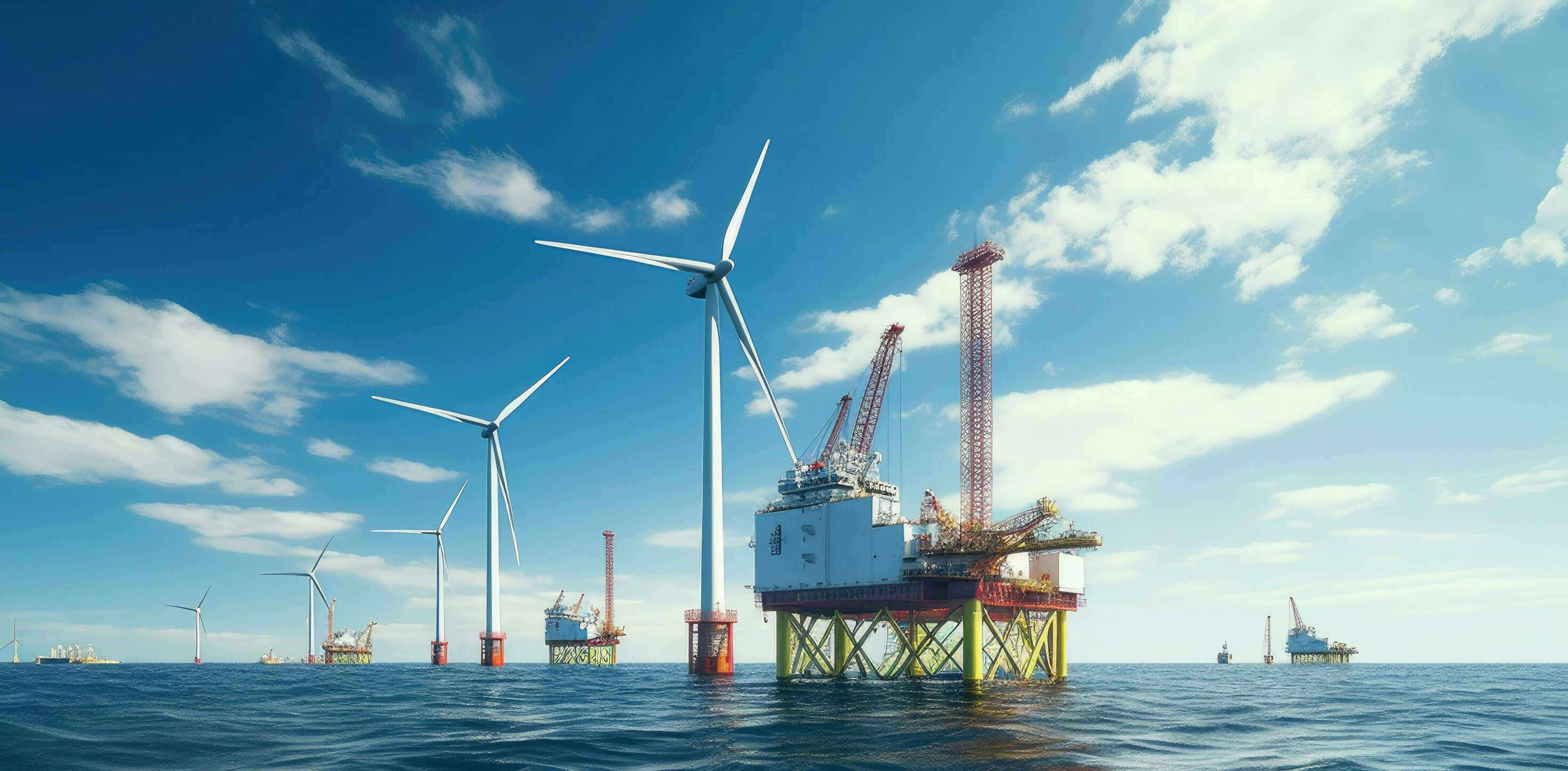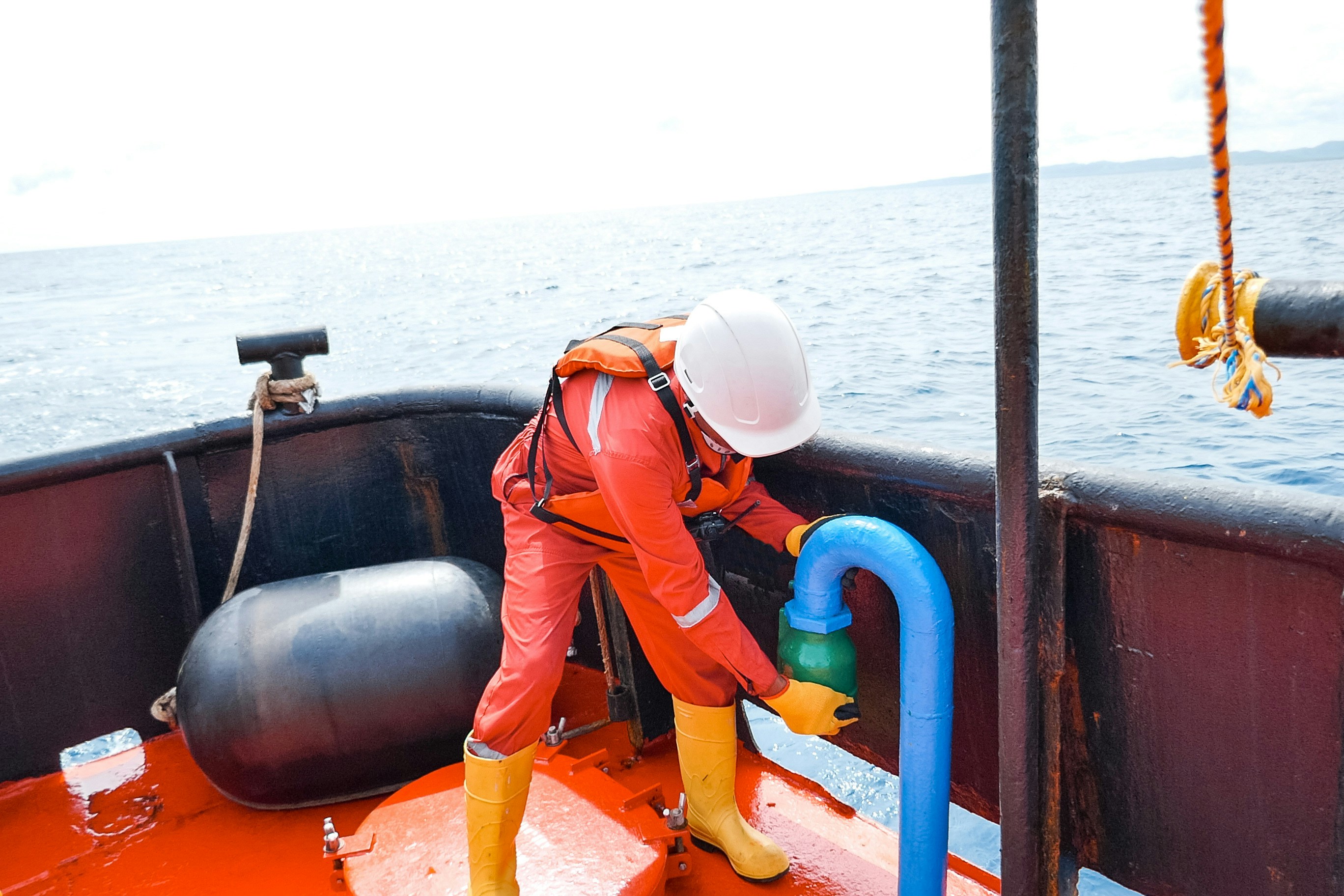The Role of Heavy Lifting in the Offshore Industry
27 Feb, 202310 minutes
Even if you’re new to the offshore industry, you’ll have seen the photos that feature whopping vessels towering up into the sky, stocked with a range of expensive equipment.
As you’ll have guessed, this apparatus isn’t just for show; it all plays a crucially important role in the day-to-day objectives of the businesses operating at sea.
This means that there needs to be a way to effectively move these resources around - shifting them from the dock on shore to the project location where they can fulfil their purpose.
However, when the materials in question weigh thousands of tonnes, it isn’t an easy accomplishment to position them where they are needed. Not without the help of heavy-lifting machinery.
What is heavy lifting machinery?
From cranes to forklifts, and from telehandlers to trucks, heavy-lifting machinery is quite literally what it describes on the tin.
It describes any piece of equipment that has been designed to shift enormous amounts of weight and bulk from one place to another.
A number of industries use this machinery on a daily basis, including (but certainly not limited to) offshore oil and gas, logistics/transportation, and construction.
The purpose of heavy lifting machinery in the offshore industry
Quite frankly, the offshore industry wouldn’t be able to operate without the support of its heavy-lifting machines and the qualified employees that can operate them.
Without being able to move sizeable materials around (like 67-tonne wind turbines and miles of concrete pipes), the sector wouldn’t have made anywhere near as much progress as they actually have.
Ultimately, putting the right infrastructure in place to mine resources or generate renewable energy would be impossible if heavy machinery didn’t exist.
Once you also acknowledge the convenience and safety improvements that using such equipment has granted, you begin to recognise just how valuable heavy lifting is to the offshore industry.
“Hoisting and lifting involve special considerations, such as lift radius, machine capacity and ground conditions. Over the years, operator-assisting devices have been added to these machines, making them easy to control. Heavy lifting equipment has evolved in size as well. Today’s equipment is capable of enormous lifts with relatively easy movement.”
- Bygging-Uddemann
The types of heavy lifting job roles
However, it isn’t just the actual machinery that the offshore industry can’t function without.
There are many different heavy-lift jobs involved with operation, creation, maintenance, and management.
Current in-demand roles include:
- Crane Operators
- Service Technicians
- HSE Supervisors
- Electrical Engineers
- Environment Surveyors
- Logistics Coordinators
- Oil Riggers
- Specialist Welders
- Structural Engineers
These employees all play an essential part of an overseas project, making them a useful addition to any team.
Pursuing a career in any of these fields is worth serious consideration.
According to Talent.com, average industry salaries sit at £50,000 (growing 50% according to your experience). Once you’ve specialised in a particular heavy-lifting arena, you’ll see your career potential scale considerably.
Is that an opportunity you’ve been looking for?
The requirements of working in heavy lifting
With a large variety of heavy-lifting jobs on offer, it won’t be a surprise that there is also a range in the skills, qualifications, and experience desired for each.
This means that, if you want to apply for certain positions, you need to do your research - speaking to industry experts like Select Offshore for more guidance.
What skills do you need to work in heavy lifting?
As most of the offshore industry’s heavy-lift jobs include training, all you’ll need to get started is some core skills like spatial awareness, proficiency in communication, and attention to detail. These will prove that you will be able to fulfil your role with the safety and respect it deserves, making you an excellent and attractive candidate for all employers in the offshore sector.
What qualifications do you need to work in heavy lifting?
However, there are certain heavy-lift accreditations that many employers will prefer you to acquire before you start your role offshore. One example of a relevant course you can take to accelerate your application includes the “Certificate of Competency in Heavy Lifting and Transportation Techniques” provided by the Maritime Academy.
What experience do you need to work in heavy lifting?
Although having a few years of experience is preferred for supervisor positions or time-sensitive projects, there are also plenty of entry-level heavy-lift jobs available where you’ll be able to learn as you work. Just be sure to choose a position that is a good fit according to where you currently are in your career and where you want to be in the future.
How to get a job in heavy lifting
Depending on the industry you are moving from and the work you’ve already done, you might find that you have some transferable skills that can be used to your advantage.
If you’ve got experience driving forklifts, for example, you should inform the recruiter reviewing your application in order to get a leg-up on the competition and land yourself the position of your dreams.
Finding heavy lifting jobs through Select Offshore
Select Offshore is a team of specialist recruiters that deliver reliable, communicative, and enthusiastic maritime professionals.
Is that you?
If you’re looking for exciting and competitive placements across any of our sectors, speak to us.
We can connect you with a company that cares for its human resources and recognises the importance of adhering to your rights.
Our team strongly believes in celebrating each of the individuals we work with, dedicating time to find them desirable offshore placements.
Contact us today to find out more.


